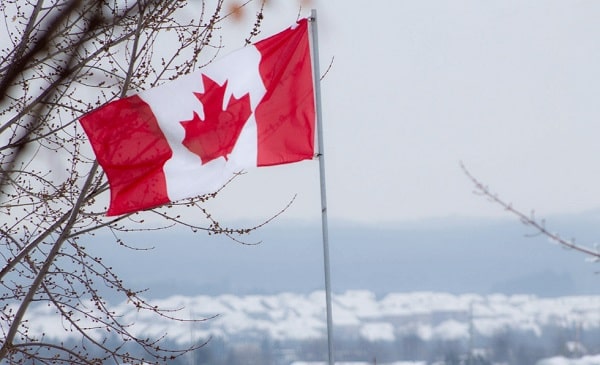Top 5 Most Practiced Religion in Canada
Are you curious and want to know the most practiced religion in Canada? A large part of Canadians believes in religion to provide their lives with purpose and spiritual meaning. Canadians are notably religious people, with about 76% of their population claiming to follow some form of religious identity or consider themselves members of a church.

Although the majority of Canadians are Christian, in recent decades the influence of other countries has made Canada more religiously diverse; with a growing number of Canadians claiming to adhere to traditional Asian and Middle Eastern religions.
The 5 Most Practiced Religion in Canada
1. Christianity
European-style Christianity has long been the most popular religion in Canada, today over 60% of the population claim Christianity as their faith. Christians in Canada have been strongly divided on how to practice their faith.
For example, three Canadians who call themselves Christians may attend three different churches and believe in three different and contradictory interpretations of the Bible. Most Canadians may not be believing or practicing Christians, but still, identify as Christians.
Read Also: The 15 Most Mountainous Countries in Europe
2. Catholicism
Catholicism to this day is still considered the largest community of self-identified Canadian Christians, at first Catholicism in Canada was particularly associated with French Canadians and the province of Quebec.
Today, the practice of Catholicism has declined markedly in the province but remains strong in other Canadian communities that have their roots in traditionally Catholic countries such as Italy, Ireland, Portugal, Poland, Latin America and the Philippines.
3. Protestant
Protestantism is the general name for any faction of Christianity that is not Catholic, approximately 30% of Canadians consider themselves Protestant. In Canada, there is a large number of Protestant churches which makes it a difficult identity to generalize its main branches are: Anglicanism, Presbyterianism, a mostly Scottish Protestant tradition.
On the other hand, there are more than half a million Baptists in Canada, a non-hierarchical Protestant denomination, best known for its fiery, conservative sermons. Canadian Lutherans are numerous and participate in a fairly conservative and traditional Protestant church.
Other small Protestant sects in Canada include the charity-based Salvation Army, the strict and puritanical Jehovah’s Witnesses, and three 19th-century churches of prophets: the Seventh-day Adventists, the Church of Jesus Christ of Latter-day Saints (Mormons) and the Church of Christ.
Rural Canada is home to a significant isolationist population from 17th-century Eastern Europe such as Mennonites, Hutterites, and Amish.
4. Judaism
Canada’s Jewish population, while small in appearance, is actually the fourth largest Jewish community in the world at less than half a million, behind the Jewish populations of Israel, France, and the United States.
Today the largest Jewish communities in Canada are found in the urban centers of Toronto and Montreal where their presence has had a significant influence on local art, politics, commerce, and cuisine.
5. Islam
With a presence of over a million Canadian followers better known as Muslims, it is said to be the fastest-growing religion in modern Canada. This fact is due to the influx of Muslim immigrants from Islamic nations, most of whom come from a small group of countries in South Asia and the Middle East.
The practice of Islam in Canada remains strongly linked to the cultures of communities such as: Iran, Pakistan, India, Egypt, Syria and Lebanon. Importantly, of the major religious groups in Canada listed above, Islam remains the most controversial.
That said, while many Canadians may be personally religious, most also adhere to the principle of secularism, in short, of keeping the faith as a primarily personal and private matter.
Read Also: The 30 Most Powerful Passports In The World
In conclusion, because Canadians have so many different and often conflicting thoughts about God and religious morality, learning to respect the faith of others while honoring one’s own has long been a vital part of maintaining a peaceful country.







